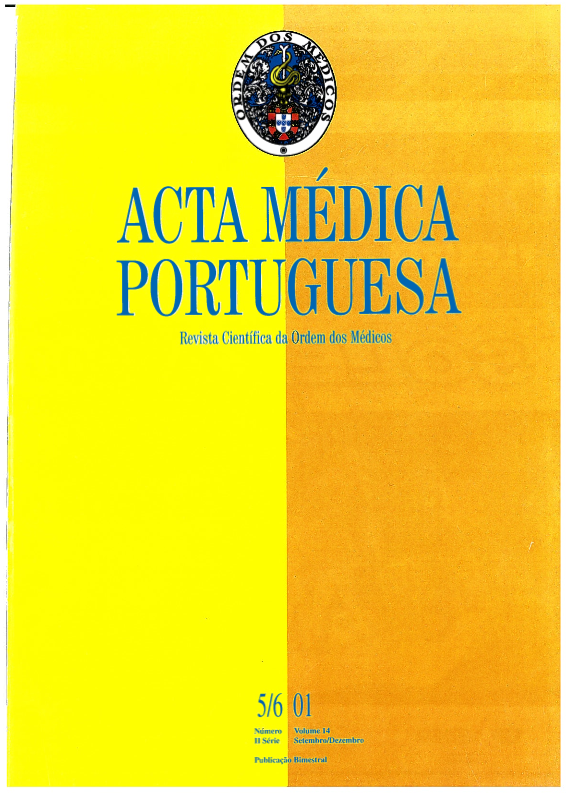Prevalence of antibodies against hepatitis A virus in a population from northern Portugal.
DOI:
https://doi.org/10.20344/amp.1893Abstract
To find the prevalence of antibody to hepatitis A virus in the population of the North of Portugal.Ten General Practitioners were asked to provide blood samples from patients who would need blood tests for any reason other than acute hepatitis, during January and February 1996. In this way, 381 samples were obtained for assessment of anti hepatitis A virus antibodies using a commercial radioimmunassay ELISA. All subjects gave their informed consent and answered to a protocol regarding age, sex, geographic area, number of people per household and sewage systems. The statistics were performed using SPSS.The 381 subjects were distributed into eight age groups: I (1-4 years)--57; II (5-9 years)--57; III (10-14 years)--26; IV (15-19 years)--41; V (20-29 years)--55; VI (30-39 years)--51; VII (40-49 years)--41; VIII--(equal or more than 50 years)--53. The prevalence of anti HAV antibodies per group-percentage (number), (confidence intervals), were: I--7.0% (4) (3-17%); II--15.8% (9), (9-27%); III--26.9% (7) (14-46%); IV--51.2% (21) (37-66%); V--85.5% (47) (74-92%); VI--72.5% (37) (59-83%); VII--87.8% (36) (75-95%); VIII--88.7% (47) (80-93%).The comparison with previous data (Lecour et al.) shows improvement in sanitary conditions of population, with associated lower prevalence of anti hepatitis A virus antibody.Downloads
Downloads
How to Cite
Issue
Section
License
All the articles published in the AMP are open access and comply with the requirements of funding agencies or academic institutions. The AMP is governed by the terms of the Creative Commons ‘Attribution – Non-Commercial Use - (CC-BY-NC)’ license, regarding the use by third parties.
It is the author’s responsibility to obtain approval for the reproduction of figures, tables, etc. from other publications.
Upon acceptance of an article for publication, the authors will be asked to complete the ICMJE “Copyright Liability and Copyright Sharing Statement “(http://www.actamedicaportuguesa.com/info/AMP-NormasPublicacao.pdf) and the “Declaration of Potential Conflicts of Interest” (http:// www.icmje.org/conflicts-of-interest). An e-mail will be sent to the corresponding author to acknowledge receipt of the manuscript.
After publication, the authors are authorised to make their articles available in repositories of their institutions of origin, as long as they always mention where they were published and according to the Creative Commons license.









